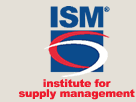Home > Publications > eSide Supply Management

Sustainability & Social Responsibility
Part 1: Becoming a Sustainability Champion — From the Middle Up
Author(s):
RaeAnn Slaybaugh
May/June 2010, eSide Supply Management Vol. 3, No. 3
One sustainability guru says junior executives and midlevel managers actually make the best candidates for the role.
You don't have to be at the executive level in your organization to get the ball rolling toward sustainability in your organization. In fact, according to Bob Willard, sustainability guru and author of The Sustainability Champion's Guidebook, sustainability champions often hold junior or middle-management positions. "Often, they lack the authority to effect the necessary changes," he admits. "But, understanding that leadership is a role, not a position, they cleverly exert their influence and convince the right people to make it happen."
For the first of a two-part series, eSide spent some time with Willard to find out what makes an effective sustainability champion, regardless of where he or she stands on the company ladder.
eSide Supply Management: You assert that sustainability champions are found throughout corporate hierarchies — in fact, you say they often hold junior or middle-management positions in their organizations. But, if they lack the authority to effect the necessary changes, how can this be true?

Bob Willard: It's a chicken-and-egg type of scenario. Very often, of course, you need senior executives on board to make the changes that need to be made. But, sometimes they need reassurance that what they're supporting will be good for the company, that it's going to work, and that it's not going to make them look foolish. So, a lot of the groundwork can be laid by other people in the organization who also care about these things. Once you try a few things that are good for the company and are successful — and you can document those successes — and if you've done pilots that are cleverly chosen, you build more and more traction in the middle ranks of the company.
After a while, you've earned the right to approach the CFO and say, 'Look, there's something going on here that we think is good for everybody, and we need your support.' At that point, you can then tap into their senior-level authority for the support you need to integrate these ideas into the company's systems for management measurements, rewards and pay.
But you can't expect any of this to happen on its own. You really have to do some legwork to ensure senior executives will feel good about the kinds of initiatives that you're asking them to support.
eSide: If you want to be a sustainability champion, what key traits or personality characteristics will you need to possess?
Willard: They're pretty much the same characteristics that you'd look for in any leader. But, based on what I've observed, I'd say there are three that really stand out.
The first one is credibility, and that's earned that in a handful of ways. You have to know what you're talking about regarding sustainability. You also need credibility as a businessperson. You can't be a loose cannon who thinks the company should be doing unnatural acts for the environment; what you propose must actually be good for the company. Another way to build credibility is by knowing how to lead — being aware of what's most critical to getting other people engaged.
The second major characteristic you need is courage. It takes guts to stick your neck out and take on something that probably isn't part of your day job. You risk other people in the organization looking at you sideways, not quite understanding what you're doing or why. Having the guts to do that is a little rare, so you really have to be brave.
The last part is determination, which is a very close cousin to being brave and courageous. You're going to get pushback from people who misunderstand your motives. There will be lots of things that get in the way of your progress. But, you have to just hang in there, keep at it and not get discouraged. Capitalize on teachable moments when they arise, and it'll work out in your favor.

eSide: What advice would you give an up-and-coming supply management professional who's passionate about sustainability, but who lacks all the confidence you say is necessary?
Willard: Well, you never know as much as you'd like to know — but that's life. Very often, I'm often called a guru on sustainability, but my goodness, what I don't know could fill a book! So, the more you know, the more you don't know.
Usually, people can supplement what they know with what other people know. So, it's kind of a collective confidence, and that's the beauty of networking.
If you lack confidence, typically, there will be something that triggers you. It will force you to say, 'That's it! This is something I really have to try to make a difference around here.' It could be that someone in your family is impacted by an environmentally caused ailment. It could be something that you see happening in the industry that really, really bugs you. Either way, something needs to put you over the edge and make you decide to take on the challenge.
In my case, I got mad. In other cases, people get concerned. But, something gets you there. And when that happens, it overcomes all the hesitation you have based on lack of confidence. You just decide, 'OK, I'm going to do this.'
You can also work the networks in your workplace. Connect with other people. Have conversations with them. Gauge their interest levels around these topics. See if you have some common ideas about what the company could start or stop doing.
Also, get good at being a change leader. The majority of my last book was devoted to helping people who care about sustainability, but need to marry their passion with some effective leadership approaches.
The idea is to show you won't fall on your sword in this effort. You must show that you understand how to approach change in a way that guarantees a better chance of success for the organization.
Part 2 of this Q&A will appear in the July/August edition of eSide Supply Management. In it, Bob Willard will discuss real-life examples of midlevel change leaders, why supply management professionals are at a unique advantage in promoting a culture of sustainability, and why it's the best time ever to be a sustainability champion.
RaeAnn Slaybaugh is a writer for the Institute for supply Management™. To contact this author, please send an e-mail to author@ism.ws.
For more social responsibility and sustainability resources, visit the ISM articles database.
Take me to the eSide Home Page.
-
About ISM
- Overview of ISM
- Media Room
- ISM Board of Directors
- ISM Officers Directory
- Affiliate Officers Directory
- ISM Affiliate Web Sites
- ISM Group and Forum Web Sites
- Frequently Asked Questions
- Chair's Corner
- ISM Annual Reports
- J. Shipman Gold Medal Award
- ISM Awards for Excellence
- Supply Management Month
- Association Governance
- ISM Ethical Principles and Standards
- Activity Calendar
- Principles of Social Responsibility
- ISM Position Statements
- Membership
-
Members Only
- InfoCenter
-
Member Information & Online Tools
- ISM Glossary of Key Supply Management Terms
- Access to CIPS Members Only Content
- Access to Supply Chain Council (SCC) Member Discounts and Resources
- ISM Tool Kit
- ISM Resource Guides
- ContractWare®Net and eTool Agreements
- Address Update Form
- Activity Calendar
- Affiliate Websites
- Group & Forum Websites
- ISM Principles and Standards of Ethical Supply Management Conduct
- ISM Group/Forum Enrollment Information
- Job Descriptions
- The Business Source
- Propurchaser.com
- eVendor Check
- Personal Professional Development Scorecard
- Affiliate Resources
- Career Center
-
Affiliate, Groups & Forums
- Affiliate, Group/Forum Award Information
- Group/Forum Enrollment Information
- Group/Forum Enrollment Form
- Groups & Forums Brochure and Flyer
- Group & Forum Case Studies
- Groups & Forums Promotion
- Spotlight on Groups and Forums
- Group and Forum Officers
- Affiliate Web Sites
- Group & Forum Web Sites
- Affiliate Officers
- ISM Officers
- Sign up for ISM's Groups and Forums Discussion List Servs
- Search for Speakers
- Discussion Forums
-
Additional Resources
- ISM Resource Guides
- Bid Specifications Database
- Purchasing/Supply Management Periodicals
- Other Web Resources
- Practix - A quarterly Best Practices publication
- ISM's Principles and Standards of Ethical Supply Management Conduct
- Associations/Organizations Useful to Purchasing/Supply Management Professionals
- CIPS Study
- Search Articles
- CIPS Members Only Content
-
Ethics and Social Responsibility
- ISM Ethical Principles and Standards
- Principles of Sustainability and Social Responsibility
- Business Case
- Supporting Organizations
- Fostering Sustainability and Social Responsibility Form
- Research
- Articles
- General Resources
- Training
- Assessments
- Metrics and Indices
- International
- ISM's Committee on Sustainability and Social Responsibility
- Job Descriptions
-
Education - Seminars, Conferences
- Conferences
- Seminars
- Knowledge Center — Online Courses
-
ISM-ADR School for Supply Management
- Customized and Standard Training and Development
- Professional Development Seminars (In-house, Instructor-Led)
- Knowledge Center Courses (Web-based, Online)
- DNA (Development Needs Analysis)
- ISM-ADR School for Supply Management Brochure
- Summary of all Program Formats
- Your Dedicated Program Managers
- Request for Professional Development Information
- Speaking Opportunities
- Speakers Directory
-
Academic/Student Opportunities
- ISM Education Resource Committee ERC
- ISM Academic Research Support Programs (Grants)
- North American Research Symposium (NARS)
- R. Gene Richter Scholarship Program for Undergraduate Students
- Scholarships Offered by Affiliates, Groups, and Forums
- Colleges and Universities Offering Purchasing/Supply Management Courses
- ISM Approved Programs
- Glossary of Key Supply Mgmt Terms
- ISM Resource Guides
- ISM Tool Kit
- Exhibiting/Sponsorship Opportunities
- Products
- Publications
-
Professional Credentials
- Frequently Asked Questions
- Certified Professional in Supply Management®
- Certified Professional in Supplier Diversity
- Certified Purchasing Manager (C.P.M.)
- Accredited Purchasing Practitioner (A.P.P.)
- Certification Forms
- Work Experience Information
- Credentials Discussion Forum
- Credentials Verification
- Additional Program Information
- International Certification Contacts
- Supply Line 2055: Certification Update
-
ISM Report On Business®
- Latest Manufacturing ROB
- Latest Non-Manufacturing ROB
- Reports On Business® Overview
- Report On Business® Brochure
- Semiannual Reports
- Seasonal Adjustments
- Manufacturing Data
- Non-Manufacturing Data
- ROB Graphical Data
- Regional Business Survey Data
- How to Respond to ROB
- ROB Online Infokit
- JPMorgan Global PMI Reports
- Other Economic Information
- ROB Release Dates
- ROB Frequently Asked Questions
- ISM/Forrester Research Report
-
Career Center
- Your Profile
- Register for the Career Center
- Job Seekers
- Employers' Corner
-
More Career Resources
- Job Descriptions
- Job Hunting Sites on the Web
- Job Hunting Sites for Specific Regional Areas
- Job Hunting Sites with Tools Such as Resume Writing Advice
- Careers In Supply Management
- Resources on Relocating
- Salary/Career-Building Resources
- Schools Offering Purchasing/Supply Management Courses
- Academic/Student Opportunities
- Frequently Asked Questions
- CAPS Research
-
Tools
- InfoCenter
- Research Tools
- Business Book List
- Discussion Forums
- Directories
- Affiliate Resources
- Group & Forum Information
- eTool Agreements
- ISM's Principles and Standards
- Supply Management Defined
- Other Association Links
- Other Related Information
- The Business Source
- Propurchaser.com
- eVendor Check
- Purchasing & Supply Sourcing Guide
- Access CIPS Members Only Content
- Access to Supply Chain Council (SCC) Member Discounts and Resources

In This Section: ![]()



